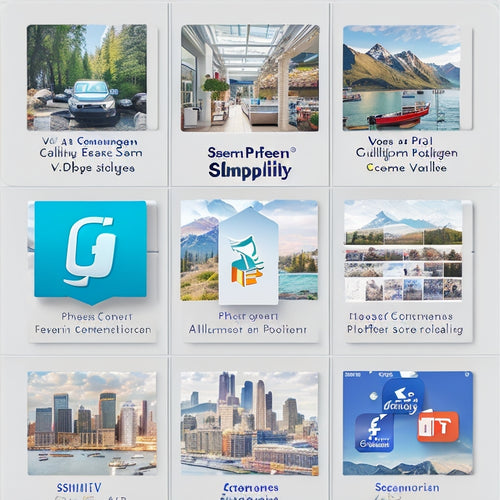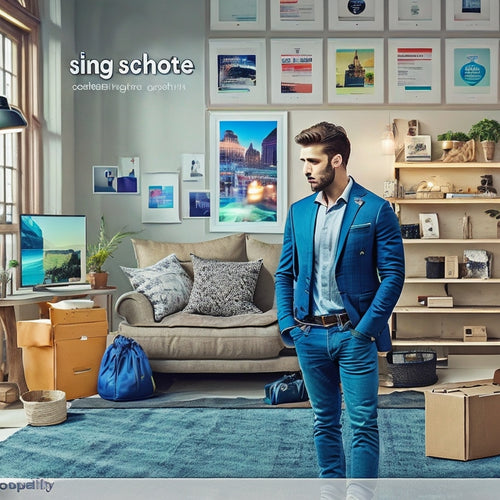
Can I Link My Shopify Store to Instagram
Share
This article examines the possibility of linking a Shopify store to Instagram.
It explores the benefits of integrating these two platforms, such as increased visibility and potential sales.
Additionally, the article provides tips on how to use Instagram shopping tags effectively.
It also includes helpful tutorials for integrating Shopify with Instagram.
By offering a comprehensive understanding of the subject, this article aims to inform readers about the process of linking a Shopify store to Instagram and provide relevant resources for further learning.
- Linking your Shopify store to Instagram can lead to increased brand visibility and targeted advertising potential.
- Maximizing the benefits of Instagram shopping tags involves importance of product tagging for discoverability and maximizing reach with relevant and specific tags.
- Product tagging on Instagram is important for discoverability and targeted advertising, and strategies include labeling specific products, using relevant keywords and high-quality images, and leveraging user-generated content and influencer collaborations.
- Best practices for tagging on Instagram include conducting thorough research on hashtags, using engaging captions, and combining popular and niche hashtags for maximum engagement.
Benefits of Linking Shopify Store to Instagram Ads
Linking a Shopify store to Instagram ads offers several benefits for businesses.
Firstly, it increases brand visibility by allowing businesses to showcase their products to a wider audience on Instagram.
Secondly, it provides targeted advertising potential as businesses can reach their specific target audience based on factors such as location, interests, and demographics.
Lastly, it offers a seamless shopping experience for customers as they can directly purchase products from the Instagram ad, leading to enhanced customer engagement and the potential for increased sales.
Increased Brand Visibility
Enhancing brand visibility can be achieved by integrating a Shopify store with Instagram. By linking these platforms, businesses can tap into the vast user base of Instagram and leverage its features to increase brand recognition.
Instagram is a powerful social media marketing tool that allows businesses to showcase their products or services to a wide audience. With over one billion monthly active users, Instagram provides an opportunity for businesses to reach potential customers and build a loyal following.
By creating visually appealing content, using relevant hashtags, and engaging with the Instagram community, businesses can enhance their brand visibility and establish a strong online presence.
Furthermore, through features like Instagram Shopping, businesses can directly link their Shopify store to their Instagram account, allowing users to seamlessly browse and purchase products, further boosting brand visibility and driving sales.
Targeted Advertising Potential
Utilizing targeted advertising strategies enables businesses to effectively reach their desired audience by tailoring their marketing messages to specific demographics, interests, and behaviors. Targeted advertising allows businesses to focus their resources on individuals who are more likely to be interested in their products or services, increasing the likelihood of converting them into customers.
By identifying the characteristics and preferences of their target audience, businesses can create personalized advertisements that resonate with the intended recipients. This approach not only enhances the relevancy of the marketing messages but also improves the overall ad campaign performance.
Seamless Shopping Experience
The seamless shopping experience is essential for businesses to provide customers with a convenient and efficient way to browse and purchase products or services without any disruptions or obstacles. To improve conversions and optimize user experience, businesses need to focus on several key factors.
Firstly, the website or app should have a user-friendly interface that is easy to navigate and visually appealing. Clear, concise product descriptions and high-quality images are also crucial in helping customers make informed purchasing decisions.
Additionally, businesses should offer multiple payment options and ensure a secure checkout process to instill trust and confidence in customers. Personalized recommendations based on browsing and purchase history can further enhance the shopping experience and increase conversions.
Enhanced Customer Engagement
Customer engagement plays a crucial role in businesses' efforts to build strong relationships with their target audience and foster brand loyalty. In today's digital age, social media has become an essential tool for enhancing customer interaction and driving customer engagement.
Social media platforms, such as Instagram, provide businesses with the opportunity to connect with their customers on a more personal level, creating a sense of belonging and community. Through social media marketing strategies, businesses can create compelling content that encourages customer interaction, such as polls, contests, and live chats.
Additionally, social media allows businesses to respond to customer inquiries and feedback in real-time, further enhancing the customer experience. By leveraging social media platforms like Instagram, businesses can effectively engage with their customers and foster long-lasting brand loyalty.
Potential for Increased Sales
One potential outcome of enhanced customer engagement through social media is an increase in sales for businesses. By actively engaging with customers on platforms such as Instagram, businesses can attract more customers and generate increased customer traffic to their online stores.
Social media marketing strategies play a crucial role in driving sales growth. By utilizing features such as shoppable posts, businesses can directly link their products to their Instagram profiles, allowing customers to make purchases with ease. Additionally, businesses can leverage user-generated content and influencer partnerships to further promote their products and drive sales.
Tips for Instagram Shopping Tags
This discussion will focus on the importance of product tagging, maximizing reach with tags, best practices for tagging, and boosting sales through tagging on Instagram.
Product tagging is essential as it allows businesses to provide detailed information about their products, making it easier for potential customers to find and purchase them.
By effectively utilizing tags, businesses can increase their reach to a wider audience and improve the visibility of their products.
To maximize the benefits of tagging, it is important to follow best practices such as using relevant and specific tags, avoiding excessive tagging, and regularly reviewing and updating tags to ensure they remain accurate and effective.
Importance of Product Tagging
The significance of product tagging lies in its ability to enhance discoverability and facilitate targeted advertising on platforms like Instagram.
Product tagging allows businesses to label specific products in their posts, making it easier for users to find and purchase those items.
By tagging products, businesses can increase their visibility and reach a wider audience.
Effective tagging strategies include using relevant and specific keywords, providing accurate and detailed product descriptions, and using high-quality images that showcase the product.
Additionally, businesses can leverage user-generated content and collaborate with influencers to maximize the impact of product tagging.
Overall, product tagging plays a crucial role in improving the discoverability of products, driving sales, and creating a seamless shopping experience for Instagram users.
Maximizing Reach With Tags
Tags play a crucial role in maximizing reach on social media platforms such as Instagram. In addition to the importance of product tagging, businesses can further enhance their visibility by utilizing influencers for tag promotion and incorporating user-generated content for tags.
Influencers, who have a large following and influence over their audience, can effectively promote tags by featuring products in their posts and encouraging their followers to use the corresponding tags. This strategy not only increases brand exposure but also creates a sense of belonging and authenticity among the influencer's followers.
Furthermore, businesses can leverage user-generated content by encouraging customers to tag their purchases or share their experiences using specific tags. This not only generates valuable content but also allows businesses to tap into their customers' networks, expanding their reach and fostering a sense of community.
Best Practices for Tagging
One effective approach for optimizing the use of tags on social media platforms is to conduct thorough research on popular and relevant hashtags within the target audience's interests and preferences. By doing so, businesses can identify hashtags that are commonly used by their target audience, increasing the likelihood of their content being discovered by potential customers.
In addition to researching popular hashtags, it is also important to consider best practices for captions. Captions should be engaging, informative, and relevant to the content being shared. They should provide context and encourage users to interact with the post.
Furthermore, businesses can maximize engagement with hashtags by using a combination of popular and niche hashtags. Popular hashtags can help to reach a broader audience, while niche hashtags can target a specific subset of users who are more likely to be interested in the content.
Overall, a well-researched and thoughtfully crafted approach to tagging can significantly increase engagement and reach on social media platforms.
Boosting Sales Through Tagging
The previous subtopic discussed best practices for tagging products on Instagram. Now, we will delve into the concept of boosting sales through tagging and explore how Instagram marketing strategies and influencer collaborations can play a crucial role in achieving this goal.
Instagram has become a powerful platform for businesses to market their products and drive sales. By utilizing effective marketing strategies, such as optimizing product descriptions, using high-quality visuals, and leveraging Instagram's shopping features, businesses can increase their visibility and attract potential customers.
Additionally, collaborating with influencers who have a substantial following and align with your brand can significantly impact sales. Influencers can promote your products through sponsored posts, stories, or even dedicated campaigns, reaching a wider audience and generating interest in your offerings.
Helpful Tutorials for Shopify-Instagram Integration
An exploration of various tutorials that offer step-by-step guidance for integrating a Shopify store with Instagram reveals valuable insights for users seeking to establish a seamless connection between the two platforms.
These tutorials provide a comprehensive overview of the benefits of integrating Shopify and Instagram, as well as detailed instructions for linking the two platforms. By following these step-by-step guides, users can leverage the power of Instagram's large user base to drive traffic to their Shopify store and increase sales.
The tutorials cover various aspects of the integration process, such as setting up an Instagram shopping account, connecting it to a Shopify store, and creating shoppable posts. Additionally, they provide tips and best practices for optimizing the integration and maximizing its potential.
Overall, these tutorials serve as a valuable resource for users looking to enhance their online presence and expand their customer base through the integration of Shopify and Instagram.
Learn More About Shopify-Instagram Integration
By gaining a deeper understanding of the integration process between Shopify and Instagram, users can effectively enhance their online presence and expand their customer base.
However, there are certain challenges that users may encounter when integrating the two platforms.
One of the main challenges is ensuring that the product catalog is properly synced between Shopify and Instagram. It is important to ensure that all product information, including images, descriptions, and pricing, is accurately reflected on Instagram.
Another challenge is optimizing Instagram ads to maximize their effectiveness. This involves understanding the target audience, creating compelling ad content, and monitoring ad performance to make necessary adjustments.
Frequently Asked Questions
How Can I Track the Performance of My Instagram Ads Linked to My Shopify Store?
Tracking the performance of Instagram ads linked to a Shopify store involves monitoring key metrics such as conversions and ad engagement. To optimize ad performance, marketers can analyze data, adjust targeting strategies, and experiment with different ad formats to achieve desired results.
Can I Link Multiple Shopify Stores to One Instagram Account?
Linking multiple Shopify stores to one Instagram account is possible. By utilizing Instagram's business account feature, you can manage and promote multiple stores seamlessly, allowing for efficient marketing strategies and enhanced brand visibility.
Are There Any Limitations or Restrictions When Using Instagram Shopping Tags?
Limitations and restrictions exist when using Instagram shopping tags. These include the inability to link multiple Shopify stores to one Instagram account, as well as limited performance tracking capabilities. These limitations should be considered when integrating these platforms.
Can I Link My Shopify Store to Instagram if I'm Using a Different E-Commerce Platform?
When considering the integration of Shopify with Instagram, it is important to note that if using a different e-commerce platform, alternatives to directly linking the two may need to be explored.
Is There a Cost Associated With Integrating My Shopify Store With Instagram?
The cost of integrating a Shopify store with Instagram varies depending on the specific features and services required. Additional expenses may include paid advertisements, sponsored posts, and fees for third-party applications or plugins.
Related Posts
-

10 Best Online Courses for Merchants to Scale
You're scaling your online store, and you know it's not easy. From ecommerce fundamentals to product visibility and i...
-

What Integrations Does Shopify Have
This article aims to provide an overview of the integrations available on the Shopify platform. By exploring the ben...
-

How Do I Choose a Shopify App
The selection of a suitable Shopify app is a crucial decision for individuals seeking to enhance their e-commerce ca...


